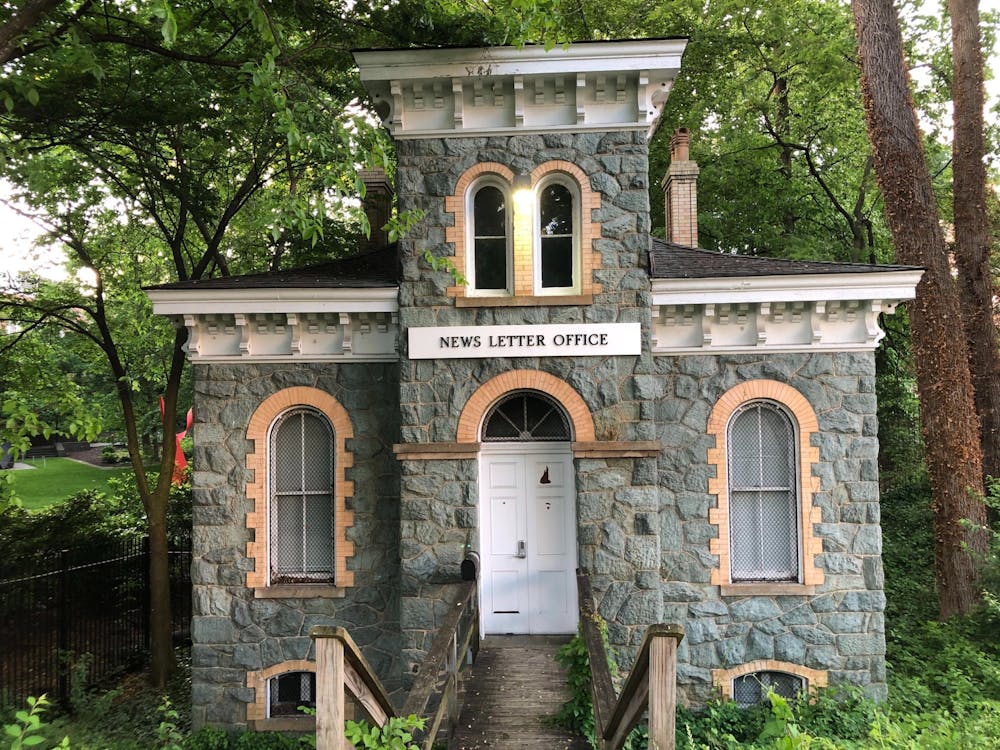Hopkins is the No. 10-ranked undergraduate school in America by the U.S. News & World Report, and has a correspondingly eye-popping tuition — $54,160 for the 2020-2021 school year — to boot. With all those Benjamins melting from your pocket like SARS-CoV-2 in the sun, you could be forgiven for asking what, exactly, your money is buying.
The good news is, the Hopkins brand is backed up by a wealth of resources available both on- and off-campus. These resources are only going to be more important in smoothing your transition to college in light of the administration’s decision to make all fall 2020 instruction online. Whether you’re seeking academic advice, research opportunities or just some friends to Zoom with on a Wednesday night, Hopkins has several organizations targeted toward building a vibrant and supportive community. For all organizations listed below, you can look them up and visit their websites for more information.
Academic Support
As a freshman, it’s more than likely that you don’t have much experience in taking college-level classes. Hopkins operates PILOT, Learning Den, and the Study Consulting program to help students develop necessary skills to thrive in Hopkins classes.
PILOT, or Peer-Led Team Learning (don’t ask me how that phrase became that acronym), is a program where upperclassmen work with a class’s professor to create and solve problems on recently taught material. They then lead small groups of students from that class in solving those problems together so they can practice what they’ve learned. Learning Den provides a small-group experience to review class material and is especially popular right before exams. Finally, through Study Consulting, students are paired with upperclassmen who can provide general time management and study tips throughout the semester.
Students in the Krieger School of Arts and Sciences need 12 writing-intensive credits, while Whiting School of Engineering students need six. At Hopkins, the Writing Center helps students edit and polish essays into coherent, cogent narratives. Make sure to visit them regularly through the semester, though, as you have to schedule times, and they’re always packed near essay due dates.
Professional and Research Support
By now, your well-meaning relatives may have already bombarded you with the age-old question: “So what do you want to do when you grow up?” Wouldn’t it be nice to have an answer to that question? The Life Design Lab at Hopkins helps students design career and academic plans for their life. Contrary to popular belief, you aren’t only supposed to meet them in senior year — starting now will help you focus your energies on projects and extracurriculars most personally meaningful to you. Plus, all the career advice you’ll get over the years will be helpful for, you know, actually getting a job.
As the University has proudly declared every year for the past 40 years (seriously, there are articles from the 1980s about this), we spend the most federal research money in the country. Awash in funds and ideas, professors need talented graduate and undergraduate students to put these ideas into motion. The Hopkins Office for Undergraduate Research (HOUR) operates several programs to fund promising student research in research groups at the forefront of their fields. Crucially, this office supports both STEM and humanities/social sciences projects — neither your class year nor your major determine your eligibility for most programs! This year, HOUR is partnering with ForagerOne to help students find remote research positions for the fall.
Personal Support
Enough with the work stuff. If it wasn’t obvious before, Hopkins is hard. And despite the resources described above, many students struggle with the sudden increase in difficulty and the significant lifestyle change. Aside from clubs, the University provides various options to help support you during your transition to college.
Through divisions such as LGBTQ Life and the Office of Multicultural Affairs, Hopkins helps students tap into fundamental parts of their identities. The groups host several events each year, and LGBTQ Life hosts weekly socials and office hours to help students meet other students with shared identities. Other offices, such as Religious and Spiritual Life, Women and Gender Resources and the other Diversity and Inclusion offices, provide similar services for a wide variety of groups.
At the Counseling Center, a wide variety of services are available to all enrolled students. Various therapy modalities, crisis intervention services and self-help services are available on the website, as well as opportunities to set up appointments with professional counselors. A student-run service known as A Place to Talk (APTT) provides a space for students to express their concerns to peer listeners. Although student volunteers on the service cannot explicitly provide advice, their incisive questions have helped me through many a vent. APTT holds weekly Zoom office hours, which are usually sent out on the Today’s Announcements emails.
The Sexual Assault Resource Unit (SARU) and Hopkins Emergency Response Organization (HERO) are two student-run organizations on campus dedicated to emergency response. Although HERO only operates on campus as an EMT service, SARU has a private, 24/7 crisis hotline at 410-516-7887. Information will not be shared without victim consent, unless there is a threat of immediate harm to oneself or others, or if there is suspected child/vulnerable adult abuse. Any victims of sexual violence or sexual assault are encouraged to contact this number, or the Counseling Center’s Sexual Assault Helpline, at 410-516-7333. Information shared on this helpline will remain confidential and does not constitute a report of sexual misconduct to the University.
In the midst of a global pandemic, the transition to your freshman fall will undoubtedly be difficult and unlike any other class’s experience in recent history. The University’s extensive support programs were useful for me in smoothing the transition during my freshman fall, and I’m sure they will be for you as well!

















